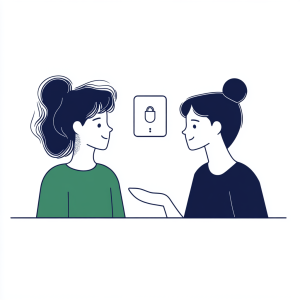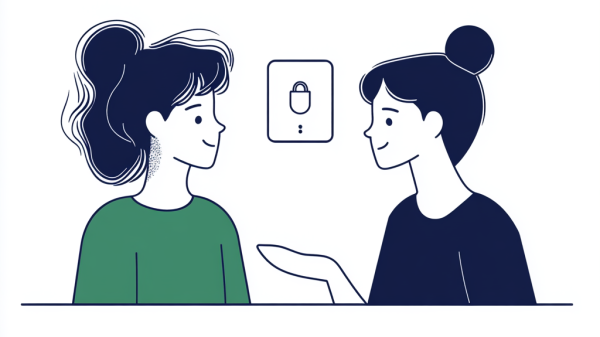Every year, thousands of people across the UK fall victim to Authorised Push Payment (APP) fraud, losing millions of pounds to increasingly sophisticated scammers. If you’ve been affected, you’re not alone—and you may be entitled to reimbursement.
What Exactly is Bank APP Fraud?
Bank APP fraud occurs when someone tricks you into voluntarily transferring money from your account to theirs. Unlike traditional fraud where transactions happen without your knowledge, in APP fraud, you authorise the payment yourself because you’ve been deceived about who you’re paying or why.
The crucial distinction here is that you didn’t intend to send money to a fraudster—you believed you were paying a legitimate person or organisation.
Key Facts About APP Fraud
- It’s increasingly common: Over £485 million was lost to APP fraud in 2023 alone
- Anyone can be a victim: From tech-savvy young professionals to retirees
- New rules provide protection: From October 7, 2024, banks must reimburse victims up to £415,000 in most cases
- Time limits apply: You must report the scam within 13 months
Common Types of APP Scams
Fraudsters are constantly evolving their techniques. Here are the most common types of APP scams you should be aware of:
1. Bank Impersonation Scams
Scammers pose as your bank, often claiming there’s a security issue with your account. They typically:
- Call with a spoofed number that appears to be your bank
- Create a sense of urgency about suspicious transactions
- Convince you to move money to a “safe account”
- May use information they’ve gathered about you to seem legitimate
Red flag: Your bank will never ask you to move money to another account for security reasons.
2. Investment Scams
These involve promises of high returns on investments that don’t exist, including:
- Cryptocurrency scams: Fake trading platforms or investment opportunities
- Property investment scams: Non-existent property developments
- Share scams: Worthless or overpriced stocks
Victims are often groomed over weeks or months, with initial small “investments” showing returns before larger sums are requested.
3. Romance Scams
Fraudsters build romantic relationships online, then exploit emotional connections to request money for:
- Medical emergencies
- Travel costs to visit you
- Business opportunities or investments
- Help with legal or visa issues
These scams can be particularly devastating as they combine financial and emotional harm.
4. Purchase Scams
These involve paying for goods or services that never arrive or are not as described:
- Non-existent holiday rentals
- Tickets to events that don’t exist or aren’t valid
- High-value items at suspiciously low prices
- Vehicles or pets that are never delivered
5. Invoice and Payment Diversion Fraud
Fraudsters intercept communications between you and a legitimate business, then:
- Send you an invoice that looks genuine but with altered bank details
- Claim payment details have changed for your rent, mortgage, or solicitor fees
- Target home buyers during property purchases when large sums are being transferred
6. Impersonation Scams
Beyond banking, scammers may pose as:
- Government departments (HMRC, DWP)
- Utility companies
- Tech companies (Microsoft, Apple)
- Delivery services
- Police or legal authorities
They typically claim you owe money, are due a refund, or need to resolve an urgent issue.
7. Job and Employment Scams
These involve fraudulent job offers where victims are tricked into:
- Paying for background checks or training
- Purchasing equipment for remote work
- Transferring money as part of financial processing “duties”
- Sharing personal details that enable identity theft
How Banks Should Protect You
Under the new FPS Reimbursement Rules (effective October 7, 2024), banks and payment providers now have greater responsibility to:
- Implement effective fraud warnings
- Design secure payment journeys
- Detect and prevent suspicious transactions
- Reimburse eligible victims promptly
- Cooperate with other banks to recover stolen funds
When You Can Claim Reimbursement
You’re generally eligible for reimbursement if:
- You were genuinely deceived (not simply making a payment error)
- You exercised reasonable caution
- You report the scam within 13 months
- You weren’t trying to purchase illegal goods or services
- The scam occurred after October 7, 2024
The Consumer Standard of Caution Exception
Banks can refuse reimbursement if they can prove you were “grossly negligent” by failing to:
- Pay attention to fraud warnings they provided
- Report the scam promptly once suspected
- Respond to reasonable information requests
- Consent to the bank reporting to authorities
However, this exception doesn’t apply if you’re considered a vulnerable customer whose circumstances affected your ability to protect yourself.
How APP Claims Can Help You
If you’ve been a victim of APP fraud, recovering your money shouldn’t be another uphill battle. APP Claims specialises in helping victims navigate the complex reimbursement process on a No Win, No Fee basis.
Our Expert Process
- Free Initial Assessment: We’ll evaluate your case to determine if you have valid grounds for reimbursement
- Evidence Collection: We help gather and organise all necessary documentation
- Formal Claim Submission: We prepare and submit a comprehensive claim to your bank
- Negotiation: Our experts deal directly with financial institutions on your behalf
- Escalation if Necessary: If your bank refuses a valid claim, we can escalate to the Financial Ombudsman Service (FOS)
Why Choose APP Claims?
- Specialist Knowledge: We understand the new reimbursement rules inside and out
- Higher Success Rate: Our expertise leads to more successful outcomes
- No Upfront Costs: We only get paid if your claim succeeds
- Stress Reduction: Let us handle the complex process while you focus on recovery
- Maximum Compensation: We ensure you receive the full amount you’re entitled to
Starting Your Claim
Taking the first step is simple:
- Complete our online form or call our dedicated support line
- Provide basic details about the scam and the amount lost
- Receive a prompt assessment of your claim’s viability
- Sign our simple agreement if you wish to proceed
- Let us handle everything from there
Act Quickly
Remember, while you have 13 months to make a claim, evidence becomes harder to gather as time passes. The sooner you start the process, the better your chances of recovery.
Protect Yourself in the Future
While we’re here to help you recover what you’ve lost, prevention is always better than cure:
- Take your time with financial decisions, especially when pressured
- Verify payment details through official channels before large transfers
- Be suspicious of unexpected calls, even if they appear to come from legitimate numbers
- Use secure payment methods that offer protection
- Remember that high returns always come with high risks
Your Recovery Starts Here
Being a victim of fraud is not your fault—sophisticated scammers use psychological tactics that could trick anyone. With APP Claims, you don’t have to face the aftermath alone.
Contact us today for a free, no-obligation assessment of your case, and take the first step toward getting your money back.
The expert team at APP Claims is ready to fight for the compensation you deserve.








